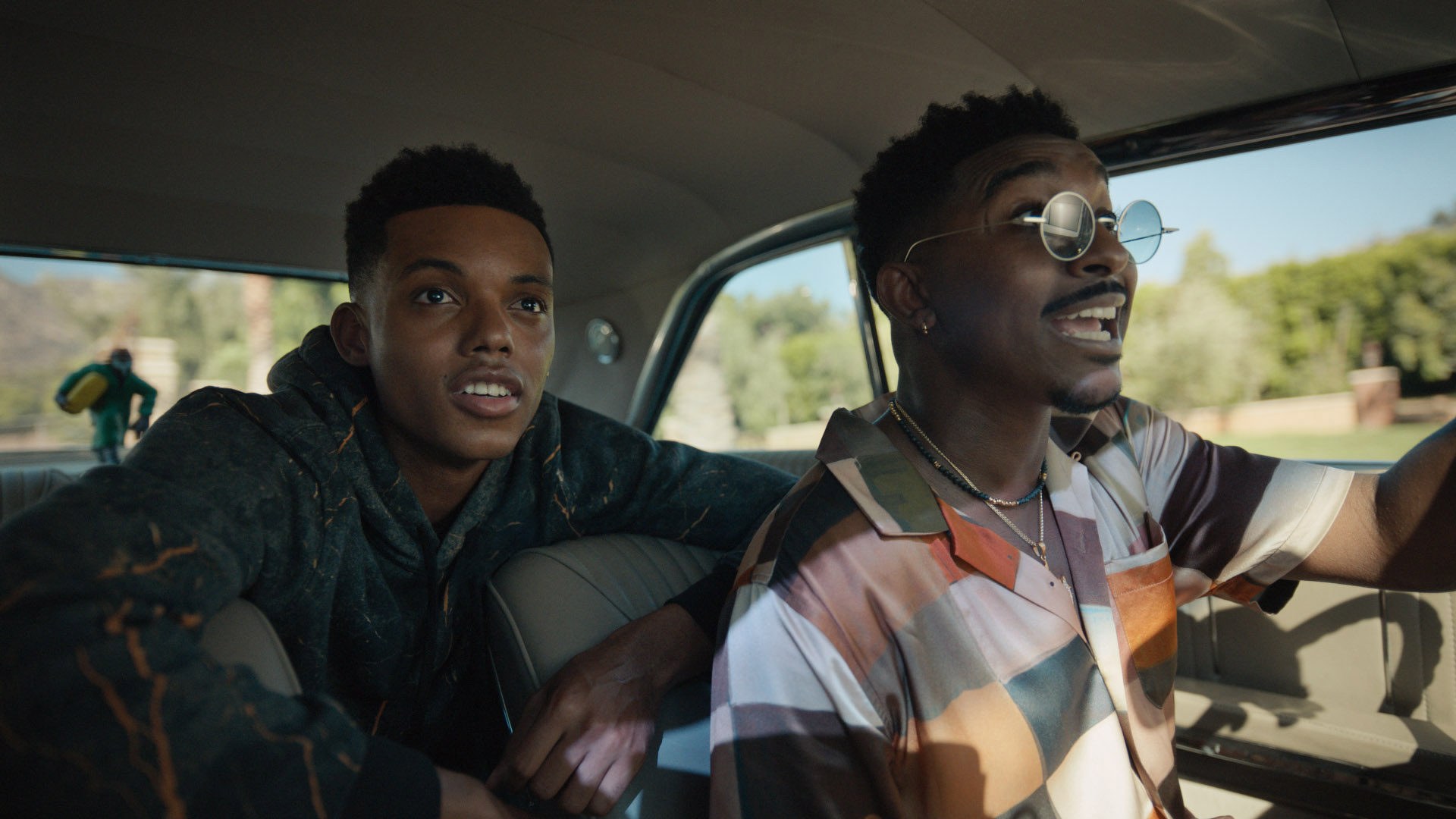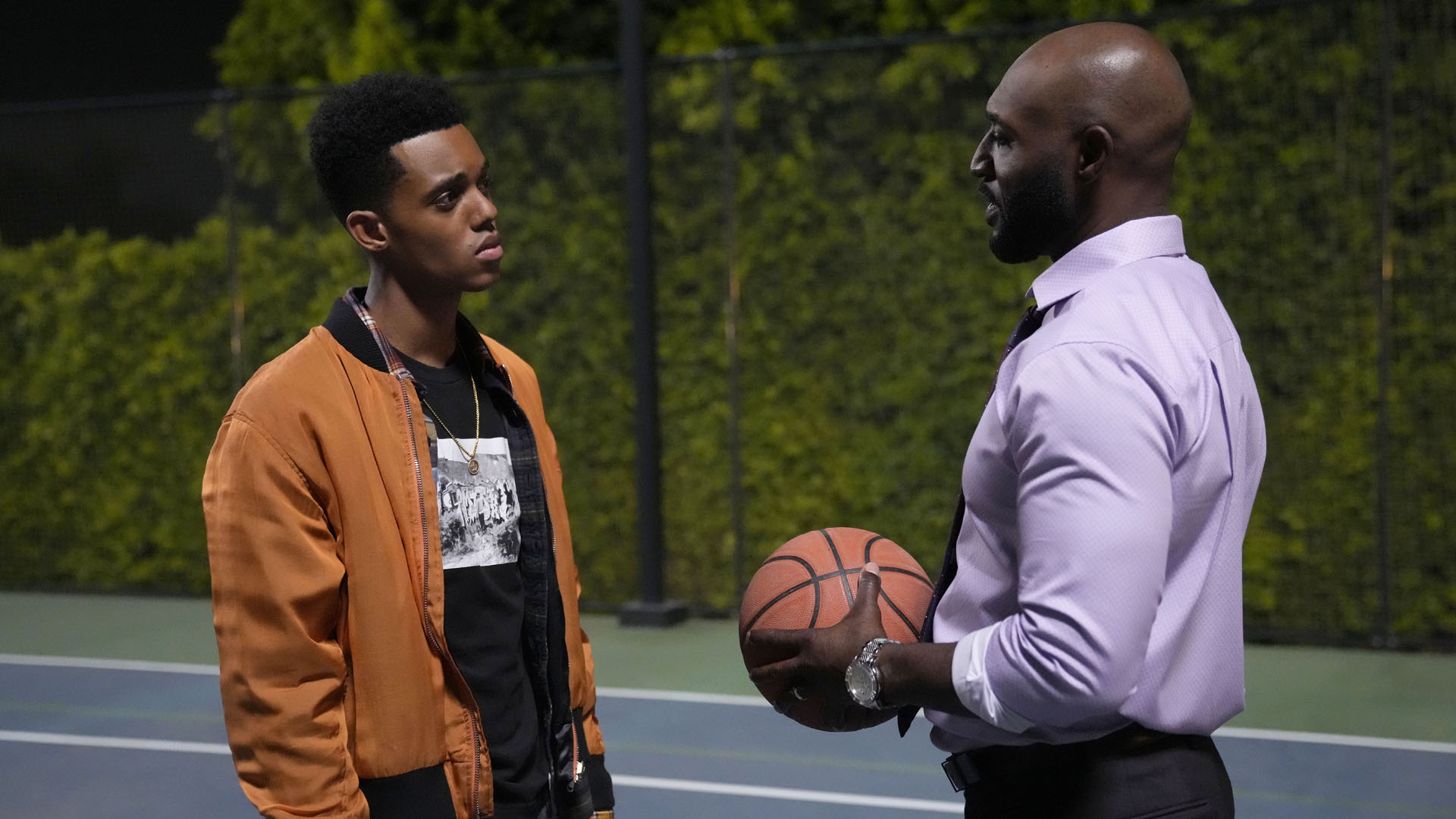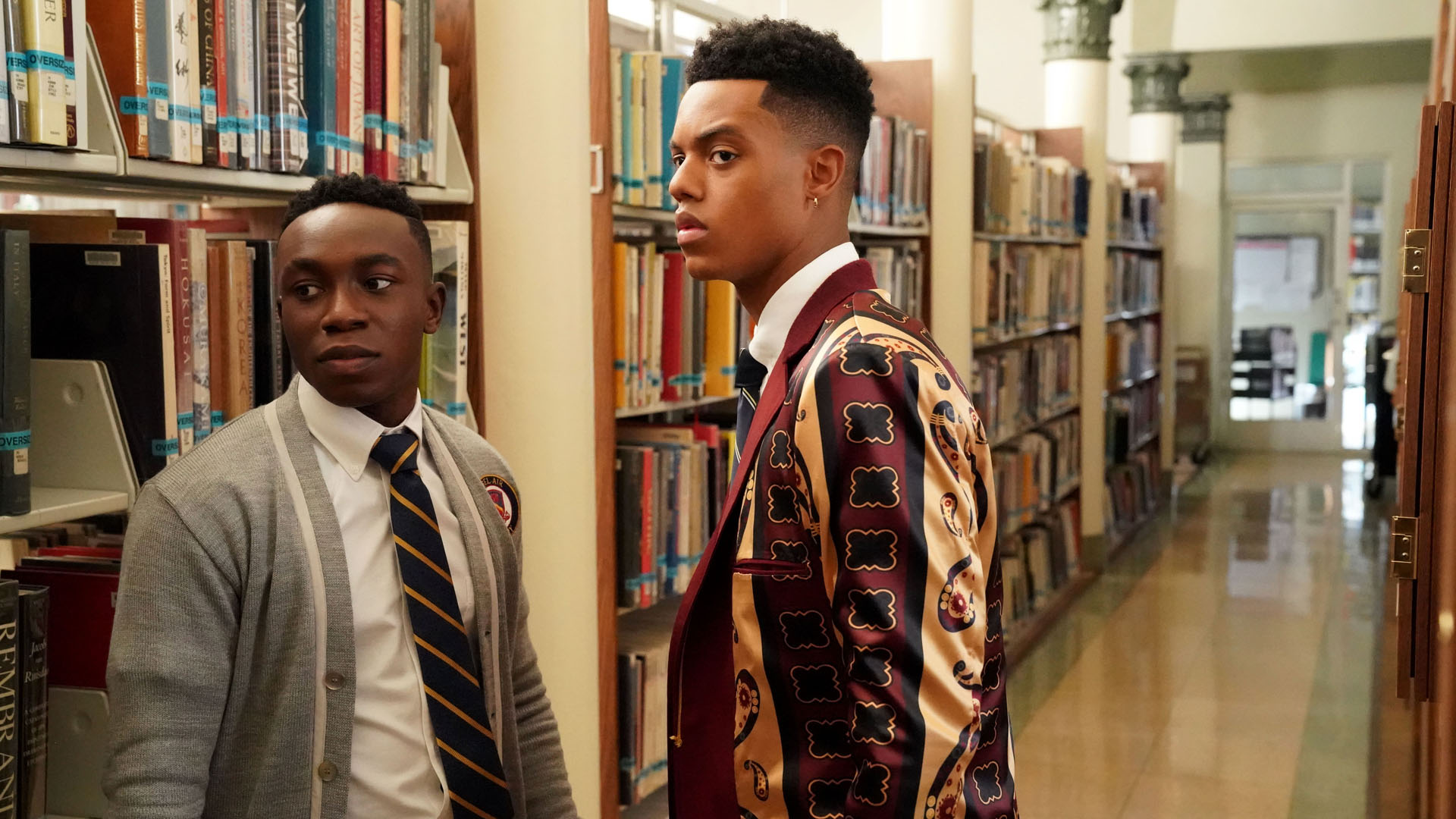Why you can trust TechRadar
“It’s like déjà vu, you see it all the time” is a phrase that could be attributed to any recent film or TV reboot. After all, Hollywood’s fascination with remaking our favorite movies and shows is a business model that profits from audience sentimentality. An idiom that calls out something we’ve seen before, then, feels apt for the entertainment industry’s current climate.
And that’s certainly true of Bel-Air, Peacock’s upcoming reboot of The Fresh Prince of Bel-Air that this quote – or, rather, lyric – is directly pulled from. Even the beloved Will Smith-starring '90s sitcom isn’t immune to the remake treatment, and fans have certainly had their say about the reboot since its teaser trailer was released in January.
Despite the discord, though, Bel-Air surprisingly isn’t a total bust. There’s a certain charm and emotional resonance to its characters and plot, and it isn’t shy about honoring what’s come before. However, even though it’s a slightly enjoyable, drama-fuelled reinvention, Bel-Air can’t escape the shadow of its predecessor. In fact, it would’ve faired far better if it wasn’t associated with The Fresh Prince at all.
So this is a story...

Set in present-day America, Bel-Air is a dramatic retelling of the story that almost every millennial will recognize. The series follows Will Smith (Jabari Banks), a confident and gifted West Philadelphian teenager with the world at his feet. That is, until a streetball game goes awry and the titular character is arrested for alleged gun possession.
Fearing for his safety after the charges against him are dropped, Will’s mom packs him off to LA to live with their wealthy relatives – i.e. the Banks family, headed by Uncle Phil (Adrian Holmes) and Aunt Vivian (Cassandra Freeman).
To paraphrase the original show’s iconic theme song, Will’s life is ‘flipped turned upside down’ as he struggles to adapt to his new life and the conflicts that emerge. Unable to return home, Will is forced to accept his unusual surroundings, reckon with new societal and cultural prejudices, and eventually come to appreciate the power of second chances.
Bel-Air’s acutely serious, emotionally cutting opening sets the entire tone for the reboot. Unlike the comedy-infused scrap that Smith gets into the sitcom’s title sequence, Banks’ incarnation becomes involved in a full-scale gang brawl after his streetball game. It’s a situation of the character’s own making, too, when he pulls a gun – albeit not his – to save his friend from being heavily beaten by a bunch of thugs. Unfortunately for Will, it’s he who gets caught in the metaphorical crossfire when the cops show up and arrest him.

Compared to The Fresh Prince, it’s a more mature and hard-hitting entry point to the story that follows. Okay, Bel-Air isn’t completely devoid of humor, but the original’s sitcom premise has clearly been replaced by more than a dash of drama. Remember that iconic moment in The Fresh Prince where Will’s dad leaves him again? Or when Carlton buys a gun to protect his family? How about when Ashley grapples with potentially losing her virginity as a young teen? Take those situations, dial them up to 10 and pepper them throughout each episode, and that’s essentially what’s on offer in Bel-Air.
As impactful as it is, though, Bel-Air’s opening salvo feels a tad clumsy in its execution and narratively escalates a bit too quickly. It hurtles through its first 20 minutes, with quick tours of Will’s neighborhood and introductions to his family and friends, swiftly making way for the event that changes his life forever.
It’s hard not to compare Bel-Air to its predecessor, and that’s its biggest problem
Sure, Bel-Air needs Will to promptly link up with the Banks family to set up the series’ other major narratives. But, for an hour-long opener that ironically drags somewhat once Will arrives in LA, the first episode’s plot could’ve been better paced.
This pacing issue is prominent throughout Bel-Air’s first few episodes. There’s an argument that Bel-Air needs time to establish its themes and relationships between characters, especially when its premiere rushed through such details. Longer episodes provide more opportunities for character development. And that’s a pleasing change of pace from the sitcom, which only focused on a supporting cast member – rather than Smith – fleetingly throughout its six-year run.
However, there are times when Bel-Air is unnecessarily slow. It’s a problem largely born out of creating needless drama between characters, especially those with little to do in certain episodes, and the slightly wooden dialogue delivered alongside it. Leaving these moments on the cutting room floor, or utilizing their plot points in character-specific episodes, would’ve made for tighter narratives.
Bank-ing on change

If there are notable issues with Bel-Air’s plot, the same can’t be said for its cast. For the most part, at least.
Jabari Banks does a fine job of replicating Smith, adopting the same mannerisms and swagger that the world-famous actor brought to The Fresh Prince. His ability to dive into the darker side of the character, and elevate drama-infused scenes, make for a highly satisfying performance.
Previously one-dimensional characters are also given a new lease of life here. Jimmy Akingbola brings a suaveness to Geoffrey, the Banks family’s house manager, which was absent from Joseph Marcell’s sardonic take on the character. Jordan L. Jones, meanwhile, makes Jazz a multifaceted individual with his own problems. It’s a refreshing change from the sitcom’s incarnation, whose appearances were restricted to being the punch line to the same (albeit amusing) slapstick moment. Simone Joy Jones’ Lisa is similarly given a larger role, as opposed to the bit-part character she had in The Fresh Prince.
While these changes are welcome additions for a 21st-century show, fans may be dissatisfied with alterations to other key characters. Olly Sholoton’s Carlton – arguably the most beloved character in the '90s sitcom – has been reinvented as a cool, popular kid (albeit one with plenty of inner demons) who makes Will’s life something of a living hell.

It’s a somewhat understandable stance, given that Carlton feels he’s being replaced by Will and, as such, neglected by his own family. Adding some tension to a relationship between cousins, which was built on unspoken brotherly respect in the original show, is an interesting shift in their dynamic. But Carlton’s desire to stitch Will up as a bad guy makes him an instantly dislikeable and off-putting character; a change that a lot of fans won’t be able to take to.
Character reinventions aside, key elements from the original show have been carried over. Bel-Air is packed with Easter eggs and references to its iconic predecessor, while explorations of real-world themes – a large part of what helped The Fresh Prince to stand out in the sitcom genre – are also expanded upon.
White privilege, class divide, absent fathers, gun violence, and socioeconomic issues were examined in The Fresh Prince’s more emotive episodes. But Bel-Air goes a step further, training a lens on difficult subjects including police brutality, Black-on-Black prejudice, and institutional racism. Examining such topics makes for a discomforting watch, but it’s necessary for a rebooted series that’s rooted in real-world drama.
Our verdict
Bel-Air is a gritty and modern take on The Fresh Prince of Bel-Air, but it’s ultimately one that’s surplus to requirements in today’s TV show market.
If you’re able to watch Bel-Air without predetermined assumptions – based on the original – you’ll likely find something to enjoy. And, if Bel-Air was a series with no ties to The Fresh Prince, it would happily sit among similarly notable shows including Empire, The Underground Railroad, Watchmen, I May Destroy You, and Atlanta.
But, save for its solid cast, focus on drama over comedy, and more lavish exterior locations and sets, most Fresh Prince fans will wonder why Bel-Air was created at all. It’s hard not to compare Bel-Air to its predecessor, and that’s its biggest problem. Bel-Air is so intrinsically linked to The Fresh Prince that comparisons are inevitable, so much so that it’s simply impossible to critique it in any other light.
For those who haven’t seen the original series, or who are curious about its rebooted format, Bel-Air is worth checking out. But, for diehard fans, this is a Fresh Prince who won’t usurp its king any time soon.
Bel-Air launches on Peacock in the US on Sunday, February 13, and Sky/Now TV in the UK on Monday, February 14.
As TechRadar's senior entertainment reporter, Tom covers all of the latest movies, TV shows, and streaming service news that you need to know about. You'll regularly find him writing about the Marvel Cinematic Universe, Star Wars, Netflix, Prime Video, Disney Plus, and many other topics of interest.
An NCTJ-accredited journalist, Tom also writes reviews, analytical articles, opinion pieces, and interview-led features on the biggest franchises, actors, directors and other industry leaders. You may see his quotes pop up in the odd official Marvel Studios video, too, such as this Moon Knight TV spot.
Away from work, Tom can be found checking out the latest video games, immersing himself in his favorite sporting pastime of football, reading the many unread books on his shelf, staying fit at the gym, and petting every dog he comes across. Got a scoop, interesting story, or an intriguing angle on the latest news in entertainment? Feel free to drop him a line.
